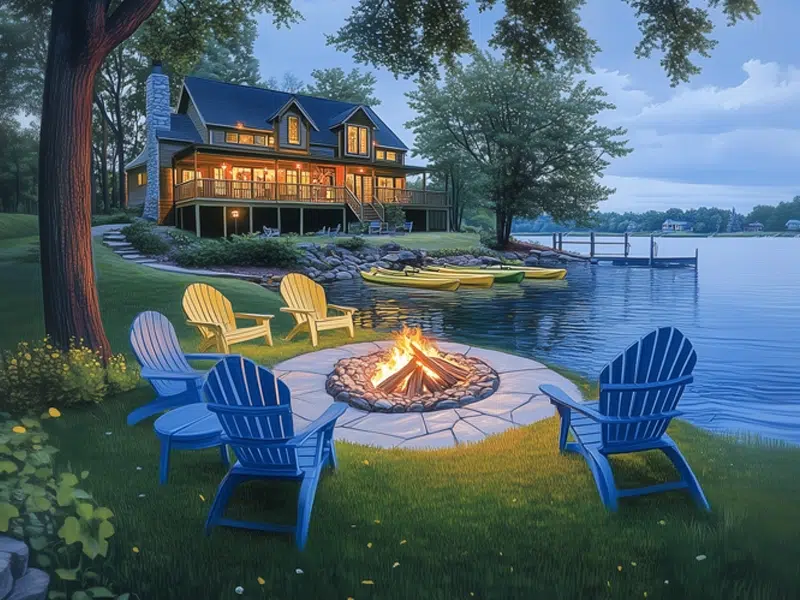Airbnb Laws and Regulations in Washington State
New and additional Airbnb laws have cropped up all over the Evergreen State in recent years. Several municipalities now require hosts to carry a liability insurance policy as a safeguard, and others now require a permit in order to operate.
If you have questions about short-term rentals in Washington, contact Proper Insurance. Our agents are experts in the vacation rental industry. Call 888-631-6680 today.
Most hosts unknowingly have the wrong insurance for short-term renting—don’t wait until a claim to discover your coverage won’t respond! Schedule a quick 15-minute review to verify your protection and gain peace of mind for your property, liability, and business income.

Bellingham, Washington
Developing Airbnb Laws and Regulations
The city of Bellingham, Washington hopes to uphold two primary goals by enforcing its recent Airbnb Laws: to maintain stable housing while protecting the safety and rights of owners, neighbors, and guests.
This ordinance requires that all short-term rental operators obtain a vacation rental permit and pay the corresponding fee. Along with the permit, each operator is limited to one short-term rental property in all residential areas and the dwelling must be the owner’s primary residence for 270 days per year, with a 95-day limit that the property can be rented out. Bellingham Municipal Code Section 20.10.037 offers further information on exceptions to these limits.
For the homes in compliance, the city implemented a list of additional guidelines for the homeowner, such as adequate street parking, accessible emergency contact for the guests, and a basic safety inspection of the property. These guidelines, along with the required permit- attempt to strike a balance between welcoming visitors while protecting the economy and community.
Chelan County, Washinton
New Airbnb Laws Require Liability Insurance for all Short-term Rentals
The Board of Commissioners passed the final Airbnb laws for Chelan County, which took effect on September 27th, 2021. The new code stems from months of tension between long-term residents and rental owners near some of Washington’s popular tourist destinations. Within the new code, there are regulations regarding zones allowed, the number of units allowed, operational standards, existing units, permit process, and a primary liability insurance requirement of no less than $1,000,000.
Many hosts believe that their umbrella insurance policy would be applicable in this situation, but this is simply not true for two reasons. First, your underlying policy must be fully exhausted for an umbrella to kick in, and many short-term rental hosts simply do not have the correct underlying insurance, so the claim never gets to the umbrella. Many short-term rental homes are insured on policies that have business activity exclusions which means it more than likely wouldn’t respond to a claim, to begin with. Second, an umbrella is not the primary liability coverage limit so it would not suffice the new Chelan County insurance requirement. You will need to show proof of $1,000,000 in liability coverage limits before any umbrella.
Seattle, Washington
Airbnb Laws Passed by City Council
The Seattle City Council passed a new set of Airbnb Laws that would effectively restrict property owners on the number of units they can rent out. According to the ordinance, property owners are permitted to rent out up to a maximum of 2 dwelling units. However hosts already operating in the downtown urban center south of Olive way and North of Cherry St will not be limited in the number of dwelling units they may operate.
These new changes were introduced to prevent property owners from turning their Airbnb rentals into a “hotel business.” In addition, hosts are required to obtain licenses before they’re eligible to list their homes for rent. The new regulations also apply to other short-term rental platforms including Airbnb, Flipkey, Vrbo, and more.
These new laws come shortly after the council passed short-term rental tax laws, which are expected to generate 7 million in revenue for the city.
Vancouver, Washington
New Short-Term Rental Ordinance Adopted
As of December 2023, the city of Vancouver has implemented new short-term rental (STR) laws and regulations. It is implemented as a 24-month pilot period to determine its success. Changes have been made including rezoning, the requirement of a business license and STR permit. The city itself has created regulations to follow over the year which include a cap of STR units, ongoing monitoring of STR compliance, monitoring the impacts of the long-term rental market, monitoring code compliance and outreach to determine program effectiveness. To stay current with the regulations, visit the city of Vancouver’s website.
The current regulations are in place:
- Business License: Must hold a Washington State Business License and a City of Vancouver Business License.
- STR Permit: Complete an STR permit application.
- Zoning: Hosts need to make sure their property is located within the City Limits.
- Insurance: Must have at least $1 million in liability insurance.
- Notify Neighbors: Must mail notification letters to the property owners abutting or adjacent to the property with notice of the STR, description of the operation, number of bedrooms that may be rented out and a phone number to contact in case of emergency.
Walla Walla, Washington
Airbnb Laws Hosts Need to Know
Airbnb Laws in Walla Walla, Washington have changed to better accommodate the skyrocketing tourism industry.
Known for its fertile agricultural areas and over 100 local wineries, it’s easy to see how Walla Walla is now a popular short-term vacation rental destination. With the growth in this market over the years, Walla Walla eventually decided on short-term rental laws, following suit in many cities and communities across the U.S.
The City has general requirements, application requirements, and development standards for short-term rentals including the following:
- A permit from the city of Walla Walla
- A local contact available to respond to issues at the short-term rental
- Compliance with all fire and safety codes, including a working fire extinguisher
- Adequate parking based on the capacity of the rental
- Owners must have property insurance and liability coverage
Hosts should also expect an application of $150, with an annual renewal fee of the same amount.
Verify Your Short-Term Rental Insurance
Interested in a policy to protect your short-term rental property, liability and business revenue? Proper Insurance is the nation’s leading short-term rental insurance provider, protecting homes in all 50 states by completely replacing inadequate Homeowners/Landlord policies with coverage that fits the risks of your rental.
Proper’s comprehensive coverage meets or exceeds standard short-term rental requirements with $1M Commercial Liability (CGL) and unmatched protection for your property, liability and revenue. Additional custom coverages include guest-caused theft/damage, amenity liability (bikes, kayaks, hot tub, etc.), bed bugs, fleas, squatters, and more.
Please note: The information provided is intended as a guide and may not be comprehensive or current. Regulations may change and could vary by area or situation. Always consult local authorities or a legal professional to ensure you have the most accurate information for your short-term rental property.



